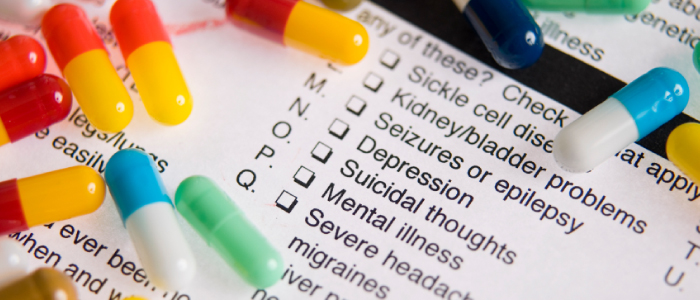 How can you decide whether to use cholesterol-lowering drugs or a supplement, like niacin?
How can you decide whether to use cholesterol-lowering drugs or a supplement, like niacin?Let’s begin by stating that elevated cholesterol levels are not the cause of any disease.
- Cholesterol doesn’t cause heart disease.
- It doesn’t cause plaque build-up.
- It doesn’t cause stroke and it won’t kill you.
Real problems arise when cholesterol levels go down. Skin can become dry from lack of vitamin D. Joints may become painful from lack of cortisol. The list of problems associated with low cholesterol is very long. Why, then is everyone so concerned about cholesterol levels? Consider that cholesterol is like a gas gauge in your car. It reports on various health conditions. Yes, there’s a correlation between coronary disease and rising cholesterol levels, but the cholesterol doesn’t cause the coronary disease. It’s caused by something else – probably inflammation – and the cholesterol levels are rising in response to the underlying inflammation. The key to avoiding coronary disease is not just to lower cholesterol. It’s to resolve the underlying problem, which allows cholesterol levels to fall – naturally.The causes of inflammation are many: infection, allergy, injury, vitamin deficiency, excess free radicals, excess carbohydrates, and lack of sleep are just a few.The only way to lower cholesterol levels without correcting the underlying causes is by using drugs. Statin drugs are the most common. Millions of people take them every day with the aim of lowering their cholesterol levels. In the meantime, the situation that can bring on disease runs unchecked. I have often wondered if it makes any sense that our bodies, which are wonderfully made, need a foreign substance to lower the levels of cholesterol. Either cholesterol doesn’t need to be lowered, or our bodies aren’t so wonderful after all.If I claim that cholesterol is good and there’s no reason to use drugs to lower cholesterol levels, why do I recommend that people can lower their cholesterol levels by taking niacin, policosanol, fish oil, resveratrol, or other anti-inflammatory products?
Doesn’t that seem like I’m talking out of both sides of my mouth? No, because using supplements affects the underlying issues that cause cholesterol levels to rise in the first place. Each of the items I mentioned – and others – address deficiencies and inflammation in a variety of ways. They supplement us and provide for the nutrients we need. When the inflammation is controlled and free radicals are reduced, our cholesterol levels can fall to their natural, healthy levels.Let’s summarize. Cholesterol levels go up in response to underlying issues. Think of a pressure gauge on a steam tank. Using a drug to lower levels is similar to placing a piece of tape over the gas gauge. Neither action resolves the real problem. Merely covering the pressure gauge does not reduce the risk that pressure will blow up the tank. In the same way, merely pushing cholesterol levels down doesn’t improve your health. In many cases, using drugs to lower cholesterol can cause health problems.Nutrients and supplements work by influencing the root causes of disease. Cholesterol drugs don’t.
Would you rather use drugs to change your “numbers” or use supplements to improve your overall health?
Please read everything you can about Statins. I am extremely passionate about this topic and I’m standing up and yelling about it.
Here are links to every article or blog post I’ve made regarding the subject:
- Your Health: Cholesterol
- Your Health: Inflammation, Statins & Cardio Vascular Disease
- Your Health: Heart Health Without Drugs
- Your Health: Cholesterol CAUSES Death?
- Side Effects of Cholesterol Drugs
- Heart Health: Policosanol & Niacin vs. Drugs
- Statin Drugs Can Kill You
- Statin Drugs Can Make You Dumb
- That’s The Drugs Talking…
- My cholesterol numbers are high!
- My TOP THREE Worst Drugs
